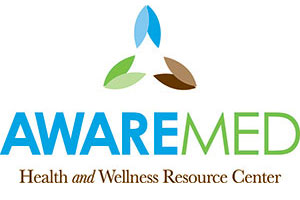Peptic Ulcer Treatment in Johnson City, TN
What Is a Peptic Ulcer?

Peptic ulcers, also known as stomach ulcers, are open sores that develop on the inside of your digestive tract, usually on the lining of your esophagus, stomach wall, or upper portion of the small intestine. Peptic ulcers are common, affecting millions of Americans each year.
There are several different types of peptic ulcers:
- Gastric ulcers form in the stomach
- Esophageal ulcers form in the esophagus
- Duodenal ulcers form in the upper section of the small intestines, called the duodenum
- Refractory ulcers represent an aggressive form of peptic ulcer that doesn’t respond to normal treatment
Peptic ulcers often cause intense pain, as well as nausea and vomiting and, if left treated, could lead to more serious infections and health complications. To learn more about peptic ulcer treatment in Johnson City, call (843) 213-1480 or contact Dr. Dalal Akoury online.
Peptic Ulcer Causes
Peptic ulcers form as a result of an imbalance between the layer of mucus that coats the inside of the digestive tract and digestive acid. The mucous coating is designed to prevent a digestive enzyme called pepsin and hydrochloric acid from injuring the stomach wall, as well as aid in blood circulation, repair, and cellular renewal processes. An ulcer occurs when this mucous coating is disrupted, causing the pepsin and acid to build up in this exposed area and destroy parts of the stomach lining.
Many different factors can cause the mucous lining in the digestive tract to break down, including:
- Helicobacter pylori bacteria : As one of the most common peptic ulcer causes, these stomach ulcer bacteria are thought to spread through person-to-person contact, or through food or drink. The bacteria cause chronic inflammation of the stomach and duodenum, weakening the mucous lining and allowing acid to cause an ulcer to develop.
- Nonsteroidal Anti-Inflammatory Drugs (NSAIDs), such as aspirin and ibuprofen, can also inflame and irritate the stomach lining. This is because NSAIDs decrease the production of a chemical that aids the mucus membrane in protecting the stomach lining from acid.
Sometimes, peptic ulcers result from conditions other than H. pylori, such as stomach cancer, Crohn's disease and Zollinger-Ellison syndrome (a condition that causes an overproduction of stomach acid).
People with a higher risk of developing a peptic ulcer are those who take these NSAIDs while smoking, drinking alcohol, eating spicy foods or failing to treat stress. Other factors that can increase your risks of developing an ulcer include:
- Being 50 years of age or older
- Undergoing radiation therapy
- Having a family history of stomach ulcers
- Having liver, kidney or lung disease
Peptic Ulcer Symptoms
Burning abdominal pain is the most commonly experienced symptom of a peptic ulcer; this pain can extend from the naval to the breastbone and worsen between meals or at night. Less common stomach ulcer symptoms include:
- Feeling of fullness, bloating, or belching
- Nausea or vomiting
- Unexpected weight loss
- Heartburn
- Difficulty breathing
- Lightheadedness
More severe peptic ulcer symptoms can include dark or black stool, or vomiting blood or dark material. If left untreated, peptic ulcers can lead to severe blood loss, an infection of the abdominal cavity known as peritonitis, or obstruction of food through the digestive system due to swelling, inflammation, or scarring.
Peptic Ulcer Diagnosis
If you have symptoms of stomach ulcers, a healthcare practitioner may perform several different tests, such as a blood, stool or breath test, to look for H. pylori bacteria or physical signs of an ulcer. During a breath test, you will consume food or drink containing radioactive carbon. Later, you will blow into a sealed bag; if there is H. pylori in your system, the bag will contain carbon dioxide.
An endoscopy or barium swallow may be used to see the inside of your digestive tract. In an endoscopy, a hollow tube with a lens will be passed through your digestive system. If warranted, a biopsy is conducted in which a small tissue sample is taken for further testing. In a barium swallow study, a chalky-white liquid containing barium is swallowed and coats your digestive tract, making it easier for your healthcare practitioner to see a peptic ulcer on an X-ray.
In addition to tests, your healthcare practitioner will review your medications and lifestyle habits to determine if they contributed to your ulcer's development.
Peptic Ulcer Treatment Options
Peptic ulcer treatment focuses on treating the underlying cause of damage to the mucous lining and often involves medication and lifestyle changes.
If an H. pylori infection is responsible for your stomach ulcer, your healthcare practitioner will likely use a combination of antibiotics to kill the bacteria and proton pump inhibitors (PPIs) to reduce stomach acid. If your stomach ulcer is caused by NSAIDs, your healthcare practitioner will likely recommend that you limit your use of them or cease use altogether. He or she may recommend a different medication in place of NSAIDs which will not cause a peptic ulcer.
For refractory ulcers, treatment can include eliminating factors that may interfere with healing and trying different antibiotics. In rare instances, surgery may be needed if the symptoms are too severe.
Peptic Ulcer Prevention
There are several steps you can take to help prevent peptic ulcers or to prevent a peptic ulcer from recurring. These preventative tips include:
- Limiting the use of NSAIDs
- Quitting tobacco use
- Avoiding alcohol, spicy foods, caffeine, and food allergens
- Managing stress
- Strengthening immune function
- Maintaining a healthy weight
A peptic ulcer can be very painful and threaten your health overall. To schedule a consultation with a healthcare practitioner in Johnson City who specializes in stomach ulcer treatment, call (843) 213-1480 or contact Dr. Dalal Akoury online.
AWAREmed Health and Wellness Resource Center
Address
1604 Lamons LaneSuite 202
Johnson City, TN 37604
(843) 213-1480
www.awaremed.com
Hours
Mon:
9:00 am - 5:00 pm
Tue:
9:00 am - 5:00 pm
Wed:
9:00 am - 5:00 pm
Thu:
9:00 am - 5:00 pm
Fri:
9:00 am - 5:00 pm


